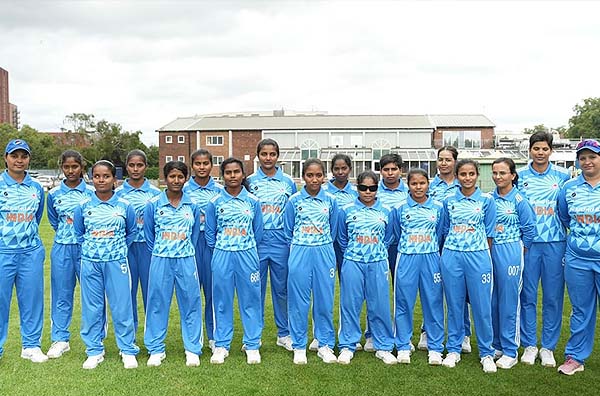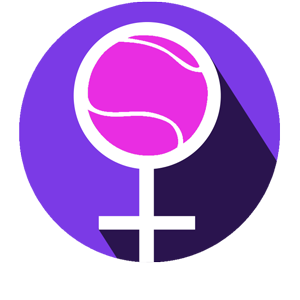The 2023 International Blind Sports Federation (IBSA) World Games held in Birmingham, United Kingdom, were historic and inclusive, as they marked the first time cricket was included, featuring both men’s and women’s competitions.
The newly formed Indian women’s team dominated the tournament. They won every match in the league stage. In the final, they went on to defeat Australia, handing them a crushing nine-wicket defeat in the final.

Recalling the triumph, Deepika TC, a player from Karnataka, said, “When we won, I had no words. I was so proud that I was representing India – as children, we would look at cricketers and wonder when it would be us.”
A documentary film titled Dekh Le India, directed by Shanthi Mohan and Mukund Moorthy, which chronicles the remarkable journeys of these extraordinary women, is set to be screened at Samarthanam Art Centre, HSR Layout, on Friday.
As Mohan points out, mainstream audiences are largely unaware of blind sports, which was a key reason behind choosing this subject for the documentary. He notes, “Women in general find it tough to make their mark, and here, we have girls who are not only blind but come from tough socio-economic backgrounds who are trying to play cricket. (It is) a popular sport in India, but hardly anyone knows about blind cricket.”
Varsha U, another Karnataka player who led the team to glory as the captain, reflects on cultural barriers as a crucial challenge to overcome. She comments, “Initially, the language and culture were so different that we didn’t understand each other. In the first bilateral series with Nepal, coordination was a problem, and we lost the game. But we slowly grew close and learnt to understand each other.”
The film opens at a tense moment of defeat, offering an intimate look into the team’s dynamics as they learn to work together. “After losing to Nepal, they regroup and identify the reasons behind their struggles. Between this and their eventual victory, we explore the girls’ personal stories: one hailing from a tribal village in Odisha, another from Andhra, and another from a family of fishermen.
Varsha U, another Karnataka player who led the team to glory as the captain, reflects on cultural barriers as a crucial challenge to overcome. Playing their first series against Nepal, the women in blue lost 1-3. The skipper commented, “Initially, the language and culture were so different that we didn’t understand each other. In the first bilateral series with Nepal, coordination was a problem, and we lost the game. But we slowly grew close and learnt to understand each other.”
Nevertheless, the team did not lose hope and put in the hard yards for the upcoming IBSA World Games. Their efforts were visible to the world when the India women secured their spot in the final by convincingly winning their first three matches. In the grand finale, Australia batted first and posted a modest total of 114 for 8 in their 20 overs. Rain interrupted the game, resulting in a revised target of 42 runs for India, which they achieved in just 21 balls. This commanding victory kept India undefeated at the Games, having won all five matches they played, showcasing their dominance over their opponents.
Directory Moorthy explains, “Boys don’t come out of these villages, but these girls have, despite being blind.” He further adds, “I found it inspiring that in our interview, they all said, ‘We don’t need pity or sympathy – just give us an opportunity.’”
Both Varsha and Deepika were unaware of the nuances of blind cricket until they came across selection games at the district level. “As a child, I was interested in all sports. Around Class 8 or 9, my sight worsened, and exam pressure increased, so I stopped playing cricket. In PU, I came across the district-level cricket selection camp – there was no national or Karnataka team for women back then – and seeing how cricket was being played there made me so happy,” recalls the winning skipper, Varsha.
Since the conclusion of the world games, the captain has taken a break from the game and is currently working. However, Deepika is made the captain of the Karnataka team. She is currently preparing for the inaugural Women’s Blind Cricket World Cup, scheduled to begin this November. She mentions that her training approach has changed in anticipation of the tournament, “Back then, I was a bit lazy (laughs), but with the World Cup coming up, I start net practice at 4am, then the gym at 9am, and back to the ground at 4pm!”
Blind cricket involves several key adaptations, including the use of a ball with bells inside, making it audible and playable for athletes who are completely blind (B1 players), partially blind (B2 players), and partially sighted (B3 players). Varsha plays in the B1 category. She explains, “After the ball has been pitched, we hear it rolling towards us, sense whether it is coming from the off-side, leg side or the centre and hit it in a fraction of a second. There is a high chance of dot balls in B1, so our whole attention is on the sound of the ball.”
The historic first Women’s Blind T20 Cricket World Cup is set to take place from November 5 to 25, 205. The first-ever edition will be hosted by India. The event, a significant global milestone in inclusive sports, will bring together teams from six nations, providing a powerful platform to celebrate ability, resilience, and international camaraderie.
(Quotes sourced from New Indian Express)
